A Revolutionary Mindset for Family Chores
What used to be a given in the life of the family, chores are now apparently falling by the wayside, with only 28% of parents stating that they give their child(ren) chores, according to a recent study. Even in spite of the up and coming evidence that chores are beneficial to children (here, here, and here), and the old-school common sense, parents just aren’t giving their kids chores as much these days.
However, YOU are not that parent, right? Because you clicked on this post, I’m going to assume you know that chores are beneficial. You want your kids to pitch in around the house. You are, after all, not a maid. Amiright?
Herein lies the big question? HOW?
A quick search on Pinterest will only give you about eleventy-billion results for chore charts, job cards, reward systems, and on and on and on. Where do you start? And do these systems even work?
Truth is, I don’t know. I haven’t tried them. The closest I’ve come to using a “chore chart” is when I jotted down a few jobs on a piece of construction paper for my son.
However, over the last few years I have stumbled on something. Something that does work. A mindset that has revolutionized the way I handle family chores.
First, I’m going to lay out the thought process that has worked for us. Afterwards, I’m going to tell you the *secret* to making it all work.. so stick around for that mmmk?
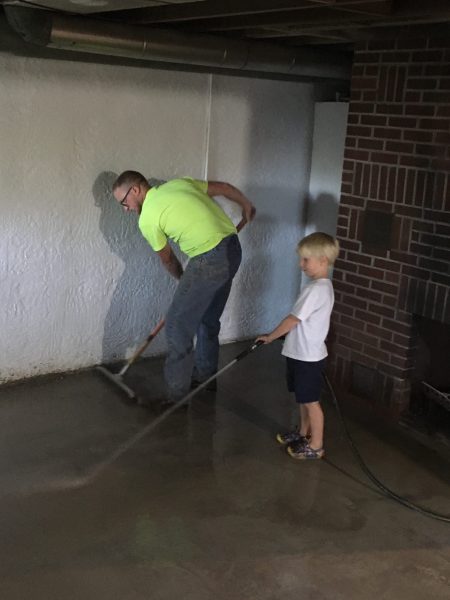
First off, no rewards!
Yep, you heard me. Basic, every day chores and house work does not get any compensation from mom and dad, other than the satisfaction of a job well done. We all live here, we all make the messes here, we all help. We do everyday chores together and work on bigger house projects together too. It’s a team effort.
Plus, if you work hard now, it means less work for mama later and maybe she can actually sit down for a minute and play that game you keep asking to play.
In all seriousness though, I don’t want rewards to be my children’s motivator to do good things and work hard, so I use them very sparingly as a general rule.
Three Stages of Workers
Here is the meat and potatoes of this method. It’s an amalgamation of various chores posts and systems I’ve read over the years. The best part is that it will work with every age child in your family. Perfecto!
Stage 1: The Helper
I’m just going to say this right off the bat. The helper’s “help” is not usually very helpful. It’s the toddler who plays in the water more than actually washing the dishes, the preschooler who folds the towels all wonky, and the child who skipped over half the window you were washing.
The helper works beside you, often getting in the way, often undoing what you just did. Sometimes the helper gets a “job” that serves only to keep him or her occupied for 5 minutes.
However, in this stage the importance does not lie with the end product. No, the importance is the feeling being helpful, of being included, and the beginning of family work becoming a habit.
So, take a deep breath… and let the toddler join you at the kitchen counter.
Stage 2: The Apprentice
This is where the real work starts. No, not for them, for you. 🙂 In this stage, you are no longer just doing damage control on their “help” – you are the coach.
It’s best to start with one task at a time. Want your child to be able to clean the bathroom? Be prepared to stand there the entire time, explaining what cleaner to use, how to scrub the toilet, and what exactly a clean counter should look like. With tasks that have multiple steps, it is helpful to have a check-list nearby to aid in independence.
In this stage you are going to be demonstrating, observing, helping, and reminding. With your training, gradually they will need your help less and less, but don’t expect it to happen overnight.
Stage 3: The Expert
It’s the stage you’ve been waiting for! You say the magic words: “please go do your laundry” – and they DO IT. Correctly. Without you. Did you hear that? You did not do the laundry. They did.
All that work has finally paid off. Your child is an expert in the chore(s) you have trained them in. Now, don’t be surprised if their memory seems to fade and they need a little time back in the apprentice stage. However, overall, you’ve got fully functioning members of the family.
It’s time to have a party! A cleaning party that is. 🙂
Moving through the stages
In our home, if you are under 5/6 years old, you are probably still firmly in the “helper” phase. I don’t even think about trying to venture out towards independent cleaning or checklists, or any of that. I just pull a stool up to the counter and call over a helper.
That said, if you haven’t done much by way of chores (or even just certain chores) an older child might still need to be in the helper phase. Let them help you make breakfast a few times (just cross your fingers there’s no egg shells in your food), then slowly move towards the apprentice mindset. Soon, they’ll be able to make a dish, then a meal, and their skills continue to expand.
A child can also be in multiple stages at once. He could be helping with kitchen work, apprenticing bathroom duties, and an expert at making his bed. It is less about having a complicated system, and more about having a mindset of slow growth through the stages.
How we set it up right now
Currently, what this looks like for us is this…
After lunch is our “chore hour.” We all work together for the hour between lunch and quiet time to do our chores and get the house feeling nice(r). The rule is this: first you do your assigned chore (apprentice stage), then you pick up your bedroom. If there is any time leftover, you help someone else with what they are working on.
Currently my 6 year old is apprenticing in cleaning floors (sweeping, vacuuming, mopping). If he has time after picking up his room, he helps me with other tasks (kitchen, laundry, etc). The toddler generally stays by me and “helps” or sometimes I’ll send him to help his brother.
The six year old also has a cooking job, which is currently training on how to prep veggies. Both boys enjoy helping in the kitchen at other times.
The SECRET to making it work
Okay, I promised a secret. So, here it is… (hopefully we’re still friends after this revelation)…
This is HARD WORK
Ah! Mind blowing, right?
Okay, okay, you’re probably thinking “Obviously! I know this is hard work! How does that help me make it work?”
Because expectations are everything.
If I expect my child to do their chores without my help and then they do them sloppily and half way, what happens? I get frustrated.
If I expect to make dinner without a toddler dumping spices all over the counter, what happens when the mess comes? Same.
Training little ones how work hard and function as productive members of society when they are grown is HARD. It is way easier to send them to their room while you fold laundry, put on a movie during dinner prep, or shoo them outside so you can mop. The struggle is real!
But, heres the thing…
“And let us not grow weary of doing good, for in due season we will reap, if we do not give up.”
-Galatians 6:9
Don’t give up! Keep the future goal in mind and it will make all that hard work worth it.
So lean on God, roll up your sleeves, grab a kid, and get to work.

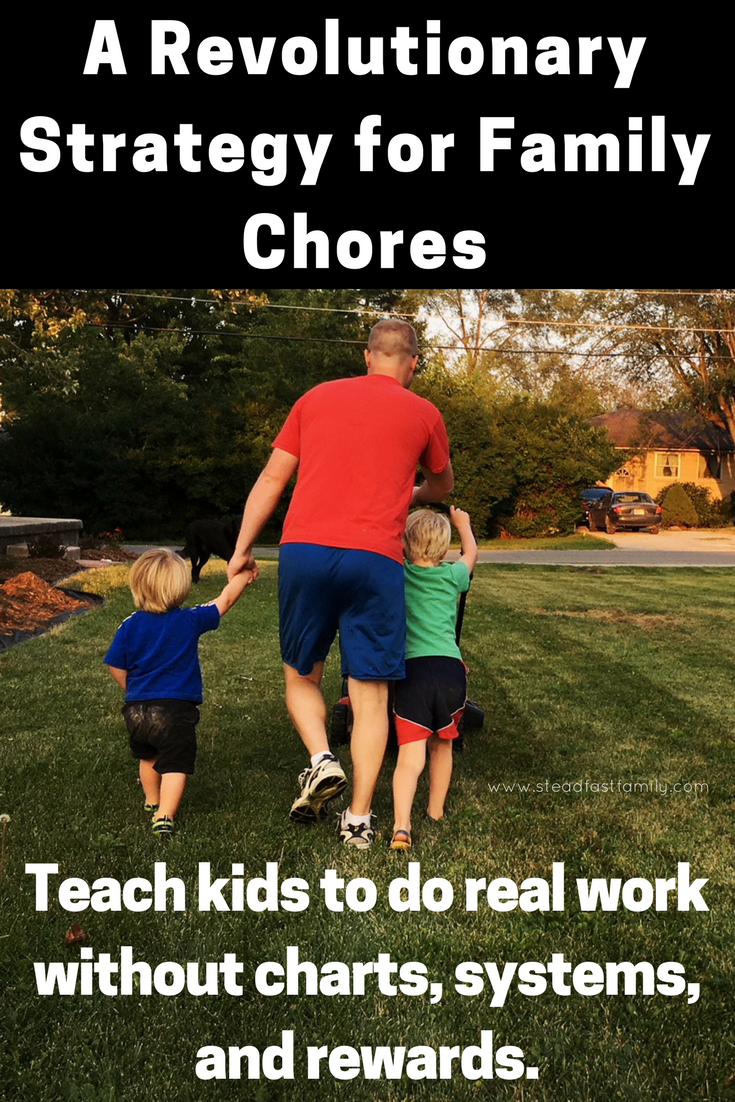
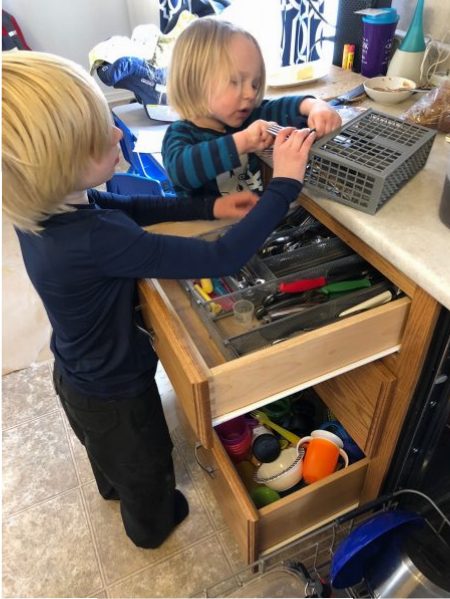
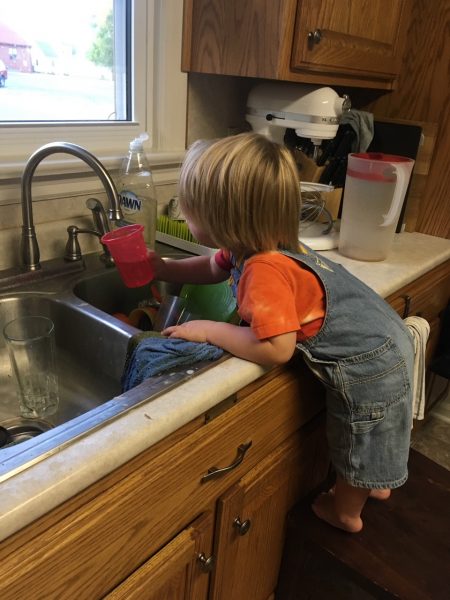
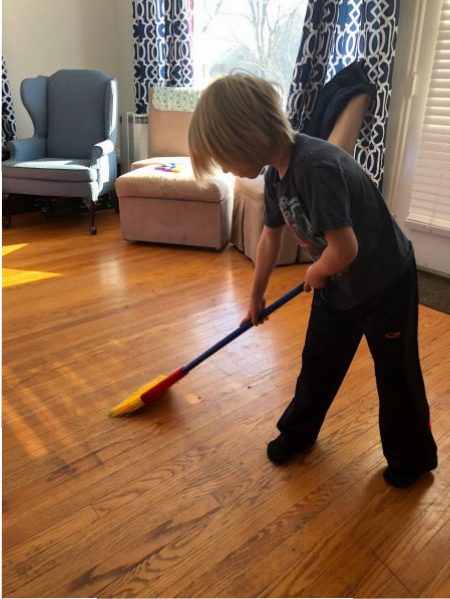
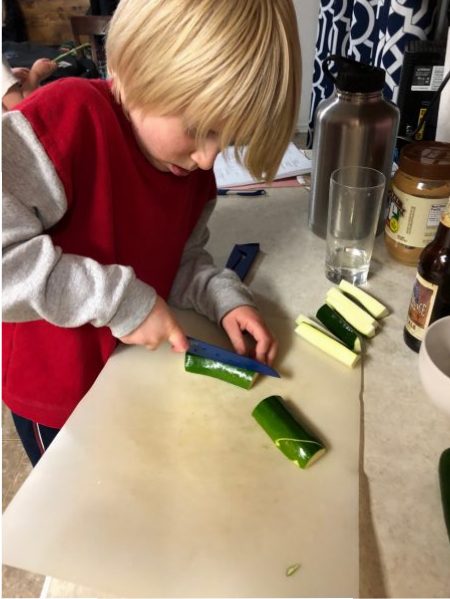
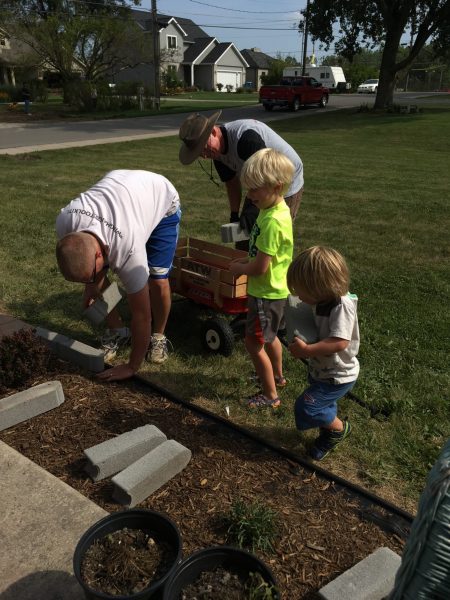
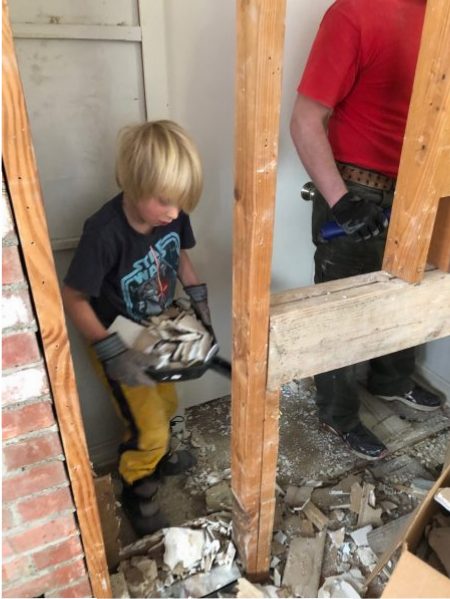
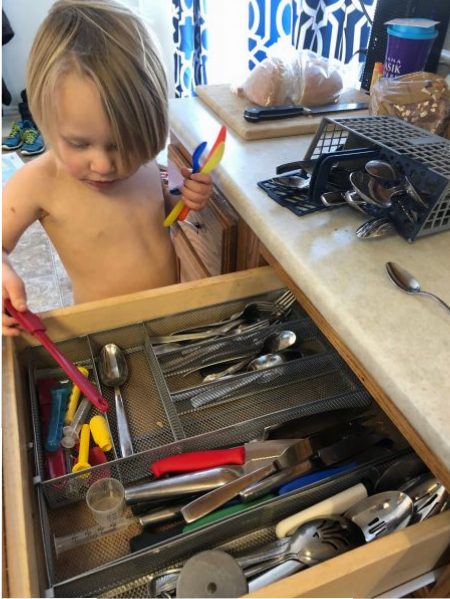
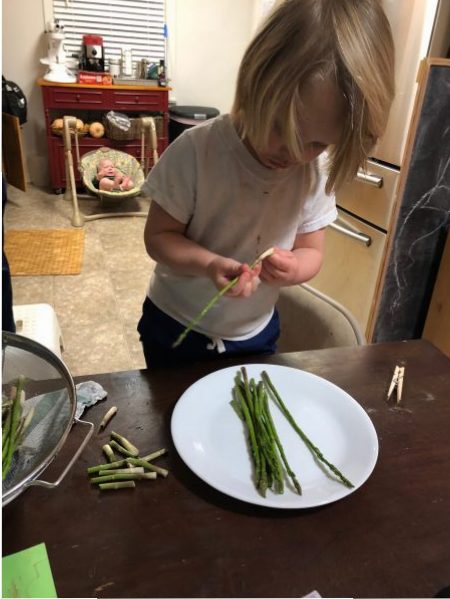
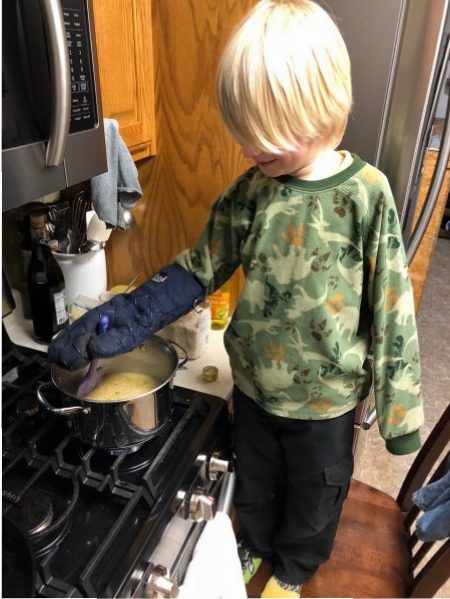
Great post Liz! I appreciate your succinct approach. Charts are so daunting, and so difficult to keep consistent with. My oldest is 6, so I’m still definitely figuring this out!
Thank you for this Liz! Helpful and honest as always.